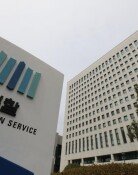Decreasing trained doctors feared to force Koreans to go abroad for surgery
Decreasing trained doctors feared to force Koreans to go abroad for surgery
Posted August. 15, 2024 08:13,
Updated August. 15, 2024 08:13
It has been six months since about 10,000 doctors in 200 training hospitals across the country walked out against the government's policy to increase the number of medical students by 2,000. The government cited the need to revitalize essential and local medicine as the reason for the expansion. However, as the doctors have not returned and the medical vacuum has been prolonged, essential and local medical services have been pushed to the brink of failure. With the college entrance examination schedule starting next month, the lack of plans to increase professors and invest in facilities is also raising concerns about the quality of medical education.
The medical community has characterized the past six months as ‘the beginning of the end for essential healthcare.’ The number of applicants for trainee doctors was declining already due to the hard work, high risk of lawsuits, and low rewards. Still, after the unilateral announcement of medical school expansion, even essential specialists who have been holding on with a sense of mission are leaving, threatening to end the generational succession of doctors. In particular, the supply and demand situation for cardiothoracic surgeons, whose number of surgical patients is increasing every year, is serious. In two years, 54 specialists will retire, but only one new specialist will be produced. There were no applicants for the training of this specialty in the second half of this year. Pediatric heart and emergency heart surgeries are being disrupted in provincial regions, and it is feared that patients in need of general surgeries, such as lung cancer surgery, will soon have to go abroad because there are no doctors. The impact on the healthcare system is severe, and immediate intervention is necessary to prevent further deterioration.
While the doctors who walked out are directly responsible for the cliff that the Korean healthcare system, which has been recognized abroad for its cost-effectiveness, has fallen to the brink in just half a year, the government should be held accountable for pushing through an important policy of expanding medical students for the first time in 27 years even without keeping proper minutes. Despite the expected collective action of doctors, the emergency care system was sloppy, and the government has failed to convince the doctor's community of its planned hike of essential medical service fees and its plan to convert hospitals to specialty centers. Who can trust the government when it promises to ‘push to introduce’ or ‘consider’ policies that were abandoned for lack of funds by previous governments without a financial plan?
Medical schools across the country have begun enrollment for the second semester, but few medical students are returning to school. The 32 medical schools in the provinces with increased student quotas have asked for an increase of 4,301 professors during a six-year period, but the government has struggled to add merely 1,000 professors during three years. University hospitals that train local doctors are on the verge of mass bankruptcies. The government is helpless, and the National Assembly, which has eight members who are doctors, is unwilling to intervene, even though the medical and doctor training system is likely to be irreparably damaged. It may be a bit too late, but the government and the National Assembly must step in and prevent the worst from happening.






